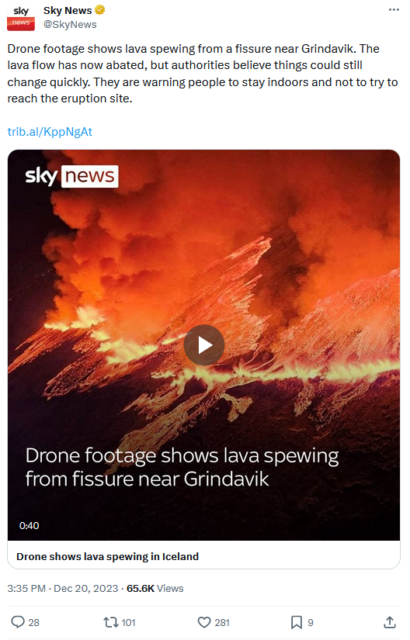Sorry for being several days behind on this, but Matt Gurney‘s message — while necessary and timely — does not have a “best-before” or an expiration date … it’s going to be valid for a long time to come:
On the military front, Canada has actually made some meaningful investments since that speech was given. We have announced deals for new transport and refuelling jets — desperately needed and long overdue. We more recently announced a plan to sole-source new surveillance planes, also desperately needed and long overdue. We also, just this week, announced that we are procuring a fleet of large, long-ranged, armed surveillance drones, to patrol our remote air and sea frontiers, after a mere two decades of mulling it over.
There ends the good news, sadly. Most of these procurements are many years away from actually being in service. And even once we have them, as good as the new equipment will be, the biggest problem for the military today is a crippling personnel shortage. The military is, to be blunt, a disaster. Far worse than is generally known. I’ve been covering military and defence issues for longer than I care to recount, and I can tell you plainly, dear readers, that the level of panicked leaking and lamenting coming out of the Canadian Armed Forces is like nothing I’ve ever seen. We don’t have the troops, sailors and aircrew to meet even basic obligations. Training is falling behind. The in-service availability of equipment and vehicles is appallingly low for lack of trained maintenance personnel and money for spare parts and equipment.
This is showing up in operations. The army doesn’t have enough soldiers to meet every commitment. The air force has cut back on operations. The navy’s top admiral is openly speaking, in public, about the crisis in his service.
We at The Line often talk about the Canadian love of talking about inputs instead of outputs. It’s easier to say “Our government has committed X dollars over Y years to address Societal Problem Z” than it is to actually ever have to answer to the public about why Z is somehow still getting worse. New procurements are an input; the desired output is a functional Canadian Armed Forces, capable of meeting its domestic obligations, honouring our treaty commitments and also being prepared for any unexpected contingencies. We do not have that military today. We cannot have that military for years. It would take massive investments and sustained effort to begin fixing this problem.
That is not happening. Hell, we took Anita Anand, one of Justin Trudeau’s better ministers and replaced her with Blair, a man for whom that has never been said. I can tell you with certainty that our allies, and our senior military commanders, had no trouble reading between those lines. Trudeau thought the military mattered, briefly, but then he stopped thinking that, and here we are.
So, 14 months out from Freeland’s speech and on the military front, well … Merry Christmas, or something?
But wait! There’s more!
Freeland’s speech also talked about other ways Canada could support its allies, and democracies in general. Some of it was vague and aspirational — hard to measure or follow-up on. But she was specific about two things: providing our threatened allies and the democracies broadly with a stable, democratic and reliable source of critical strategic resources. Energy, for example. And minerals.
Fourteen months later, how are we doing on those fronts?
I’m not an expert in either area, but I know experts in both. Andrew Leach is an energy and environmental economist at the University of Alberta (I literally copied that bio right off his webpage there). He is also, simply put, one of the smartest guys on the energy file in this country. I called him this week and found him grading papers, which is probably why he was so willing to talk with me. I explained to him what I was doing with the Brookings speech, and asked him if there was anything he could point to over the last 14 months as signs that we’d gotten serious and were doing as Freeland had said we would and must.
Nope!
“By any metric, it’s worse today,” Leach said. Two months ago, he noted, the Supreme Court ruled against the Trudeau government’s energy policies. “Now, there are no clear processes to get approvals for anything,” he added, except, somewhat ironically, pipelines, whose approvals process wasn’t included in the court ruling. I asked him if this was something the Trudeau government had done to itself, or if it was a victim of happenstance, and he said that some of the legislation they were dealing with dated back to the Harper era — before their time — but that in general, the Trudeau government hadn’t handled this well. “They messed up. They assumed they had powers they didn’t have, and didn’t make the arguments for those powers. They didn’t think about the framing. They had to earn that. They didn’t.”






